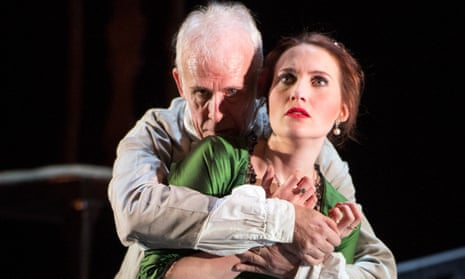English Touring Opera takes to the road with novice opera director Blanche McIntyre’s staging of Puccini’s political thriller, set in Rome in June 1800, which designer Florence de Maré presents in a semi-abstract structure consisting of steps, ramps and a tower, but with period costumes.
Dramatically, the result is uneven, with all three of the central performances needing greater definition and the set getting in the way at least as frequently as it offers opportunities: the Te Deum that ends the first act in spectacular musical fashion deserves something with equivalent visual impact to accompany it.
Vocally, a good deal of the performance is on firmer ground. Paula Sides’ Tosca is delivered with liquid tone and a keen sense of textual and vocal expression. As her lover Cavaradossi, Alexander James Edwards looks stiff, but his tonal quality is sufficiently warm and Italianate for him to field a memorable vocal presence.
Craig Smith manages a visually saturnine Scarpia, though there’s not enough juice or steel to his tone to make his sadistic police chief the magnetic villain he needs to be. The emotional rollercoaster of his second-act confrontation with Tosca feels too tame.
Some of the smaller roles go well, including Timothy Connor’s harassed Angelotti, Matthew Stiff’s easy-going Sacristan and especially Aled Hall’s pungent Spoletta. But it’s in Michael Rosewell’s perceptive conducting and the alert playing of ETO’s orchestra that Puccini’s melodrama comes alive.

Comments (…)
Sign in or create your Guardian account to join the discussion